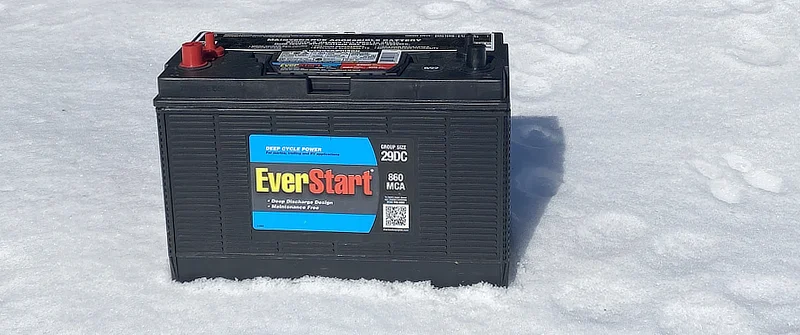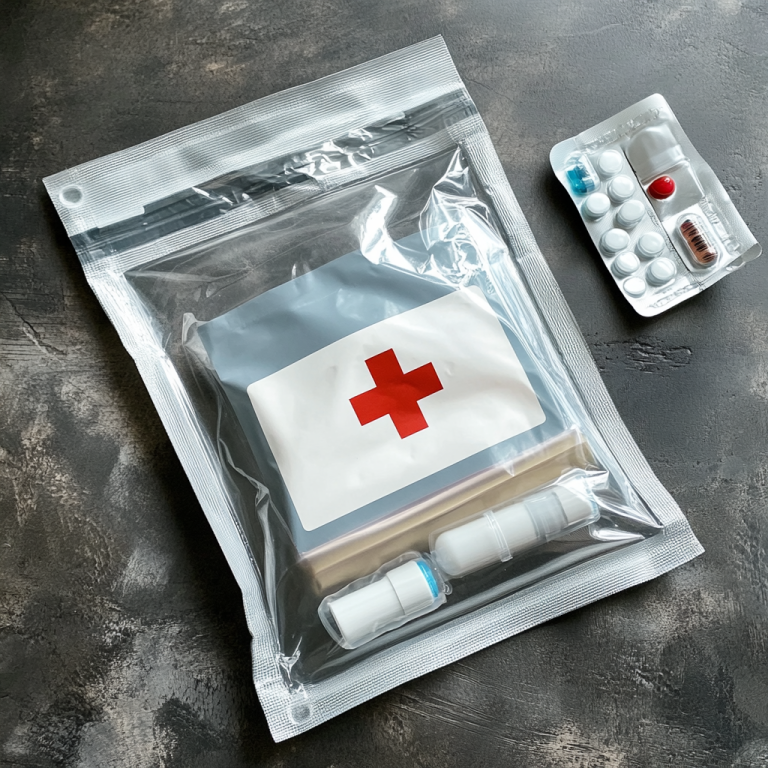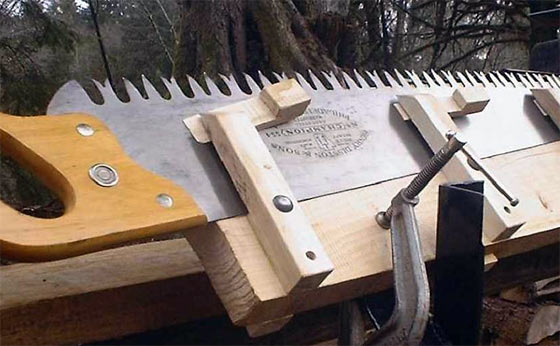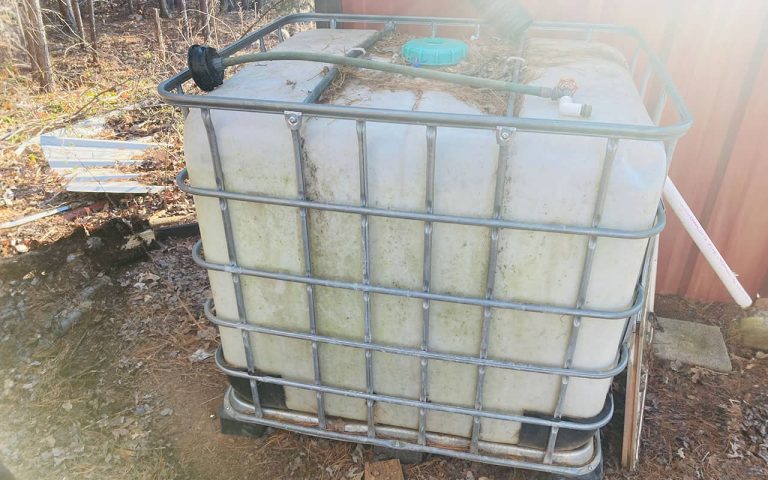Yes, A lead acid battery has a freezing point. It could become damaged or ruined. But under what circumstances will a flooded lead acid battery freeze (like those in your car or truck, tractor, riding mower, ATV, boat, generator, motorcycle, etc..)?
I’ve included a lead acid battery freeze-temperature (versus state-of-charge) chart below…
Putting it simply, a completely depleted ‘dead’ lead acid battery will freeze at 32°F (0°C). When a lead acid battery is fully discharged, the electrolyte inside is more like water so it will freeze”.
What happens when a lead acid battery electrolyte physically freezes? Likely, it will become irreparably ruined to a sufficient extent. The ice that forms will expand and press on the internal cells and plates (and bulging the wall/case of the battery itself).
The case may even crack – resulting in leaks. Given internal physical tolerances, some (or all) of it may ‘short out’ inside. The battery may never hold a proper charge (or any charge) again.
However, a well charged lead acid battery in good condition will not freeze in practical use. But the less charged it is, the more susceptible to freeze damage. Even for a fully charged lead acid battery, there’s still a point of freezing. But those temperatures are extremely cold and you likely will not ever experience that cold (keep reading).
The problem arises when your battery is only partially charged or is no longer in good condition. This is when you might run into trouble during the cold winter months.
A little more detail… The exact numbers vary a bit, depending on a few factors. A fully charged (lead acid) battery will freeze. But not until temperatures drop to -94°F (-70 °C)! That’s pretty much not going to happen anywhere here on earth, right?!
Can a flooded battery freeze?
The only way that a battery can freeze is if it is left in a state of partial or complete discharge.
As the state of charge in a battery decreases, the electrolyte becomes more like water and the freezing temperature increases.
The freezing temperature of the electrolyte in a fully charged battery is -92º F (-69º C). At a 40% state of charge, electrolyte will freeze if the temperature reaches approximately 16º F (-9º C).
Important >> The less charge on the lead acid battery, the more susceptible it is to freezing.
I built a chart that cross references battery state-of-charge with the approximate temperature at which the battery will freeze. This is for lead acid type batteries. Car batteries, for example. Or those which typically install in lawn tractors, ATV’s, snowmobiles, maybe in your camper, etc..
Lead Acid Battery Freeze Chart
Temperature vs State of Charge
To put it another way, a lead acid battery freezing point will be -40F if it’s down 20% from a full charge. Or -22F if it’s down 40% from full charge. Or it will freeze at 14F if it’s down 70% from a full charge.
Battery Tender Plus Trickle Charger
(amzn)
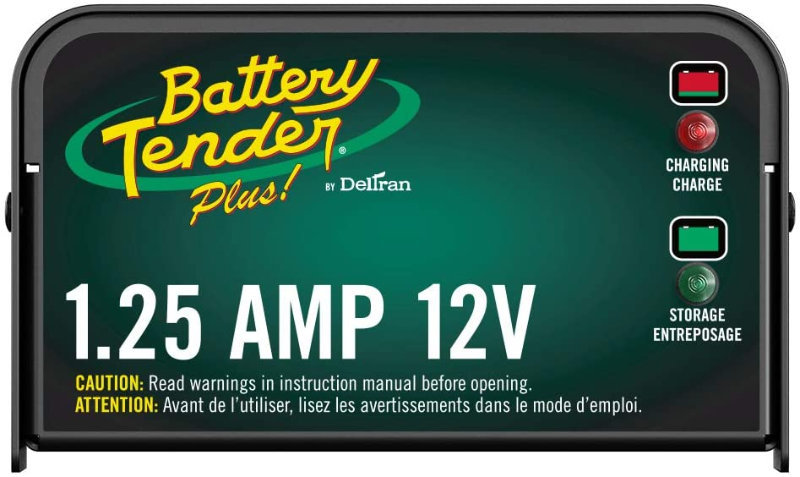
^^ I’ve been using this model 12-volt Battery Trickle Charger (and the one below) for years. I periodically trickle charge my lead acid batteries. I also have chargers connected to my stowed mowers and tractors during the winter.
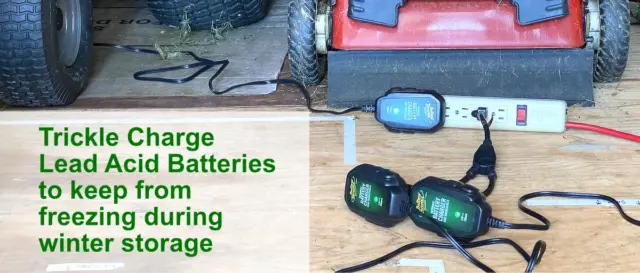
The following article provides a better understanding of battery state of charge (approx.. corresponding open-circuit voltage). There are caveats to these measurements – which are clearly explained in the article:
[ Read: Battery State-Of-Charge Chart ]
Again, if your battery is only half charged (50% SoC), it could freeze solid at -4°F. This scenario is entirely plausible if you’re not careful.
I often see temperatures below zero during the coldest winter months. The coldest I’ve experienced here was -32°F. It is not uncommon to experience early morning temperatures around 20 below at times throughout the winter here. So I need to be attentive.
I lost two 12-volt batteries several years ago in my 5th-wheel camper. Although they had been charged, I forgot to physically disconnect the batteries for the winter. As it turned out, there was a small parasitic drain constantly drawing down the batteries (propane gas detectors and a few other things). The batteries eventually went dead. And then they froze. It was an expensive mistake that I will never make again!
What about the 12 volt batteries on your tractor, lawn mowers, ATV’s, etc.. during winter?
Some people remove them and store inside where it’s warm during the winter. This is a good idea. Better safe than sorry, right?
However, you can leave a lead acid battery installed during the winter. But only if the battery is in good condition, there is no parasitic load slowly draining the battery, and the battery is fully charged. I keep trickle chargers on mine, just in case.







